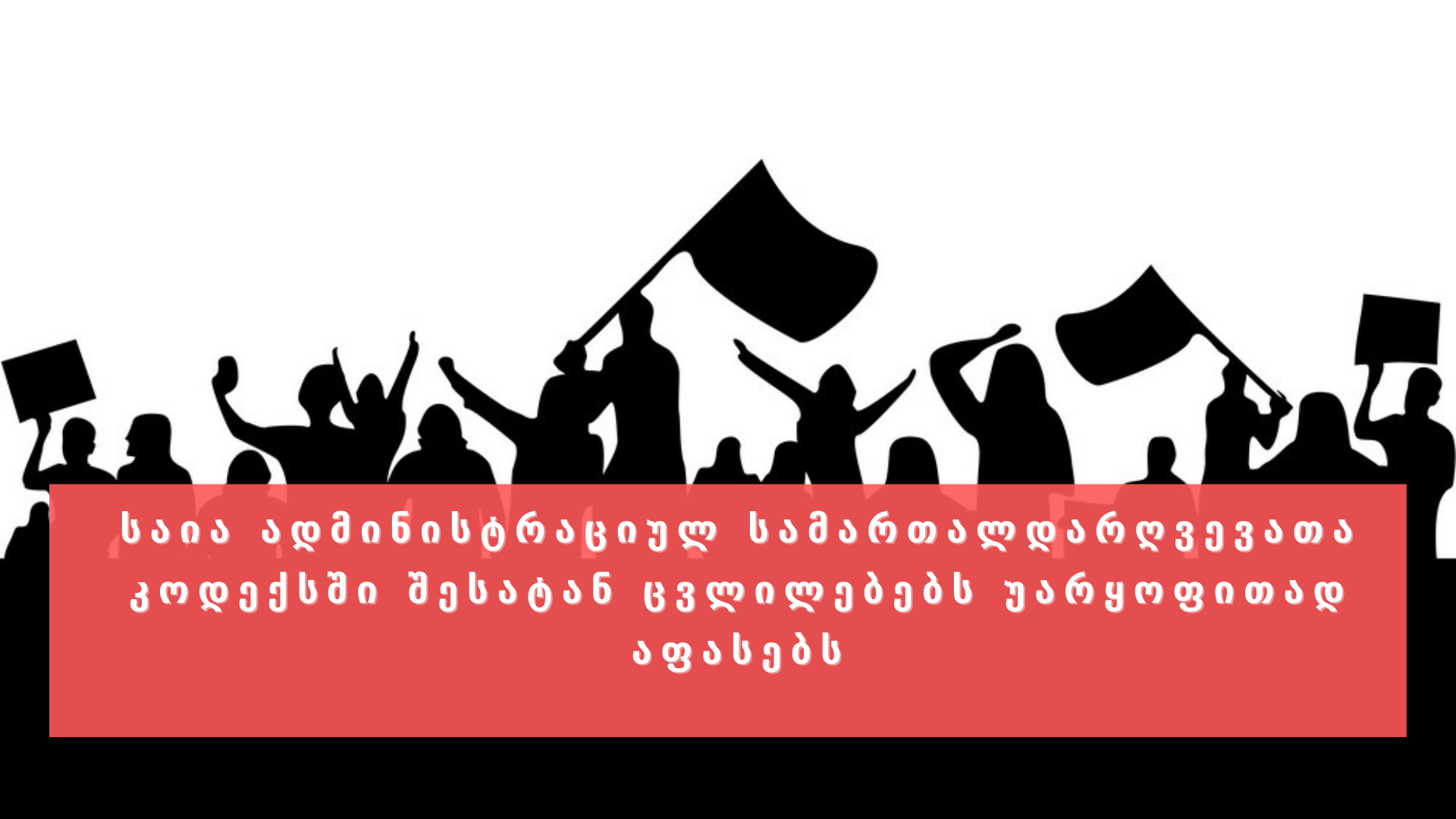NEWS

The Georgian Young Lawyers' Association (GYLA) negatively assesses the draft amendments to the Code of Administrative Offenses and calls on the Parliament not to support the planned changes. In particular, on April 26, two draft laws were registered in the Parliament of Georgia, which are being considered in an expedited manner. One of them concerns the amendments to Articles 166 (petty hooliganism) and 173 (non-compliance with the lawful demand of the police) of the Code of Administrative Offenses of Georgia.
According to the draft law, the sanction on both articles is significantly tightened, however, the role of the judge is reduced - to determine the measure of the sanction or to use a verbal warning, taking into account the factual circumstances of the case.
GYLA considers that the tightening of sanctions in a situation when the procedural part of the case established by the legislation on administrative violations is not in accordance with the obligations under the Constitution of Georgia and international treaties, is unjustified and increases the possibility of unlawful interference with human rights. However, the tightening of the sanction will have a detrimental (stinging) effect on the realization of peaceful assembly and freedom of expression, especially when the normative content of these articles is unconstitutional. It should also be noted that the systemic reform of the Code of Administrative Offenses has been discussed for years and there is an expectation that the Parliament of Georgia will soon begin discussing fundamental revision of the legislation on administrative offenses. Consequently, instead of a comprehensive reform, the substantial tightening of the repressive part of the Code will have a detrimental effect on human rights.
In addition, the procedure for reviewing the draft law is flawed. It is important to note that the decision to expedite consideration of a draft law is made by the Bureau of Parliament on the basis of a written substantiated request by the initiator of the draft law[1]. In this case, the grounds for expedited consideration of the draft law are unclear. It should be noted that expedited consideration of the draft law makes it difficult or impossible to involve the public.
The second draft law envisages amendments to Article 247 of the Code of Administrative Offenses of Georgia. According to the draft law, a person detained during an administrative detention will be brought to court as soon as possible, but not later than 48 hours. According to the proposed draft law, it is true that the judgment of the Constitutional Court is enforced, however, the draft law neglects the reasoning part of the judgment of the Constitutional Court, according to which the 24-hour detention period is quite sufficient to present a person in court regardless of the time of his arrest. However, it is important to write in the draft law that when the grounds for detention of a person expire, he/she should be released immediately. The existence of the record mentioned in the draft law will insure the cases of abuse of the law when a person is detained in solitary confinement after the grounds for detention expire on the grounds that the term of detention has not yet expired.
For more information, see GYLA's written submissions to the Parliament of Georgia.
[1] Rules of Procedure of the Parliament of Georgia, Article 117 (3).
SHARE: